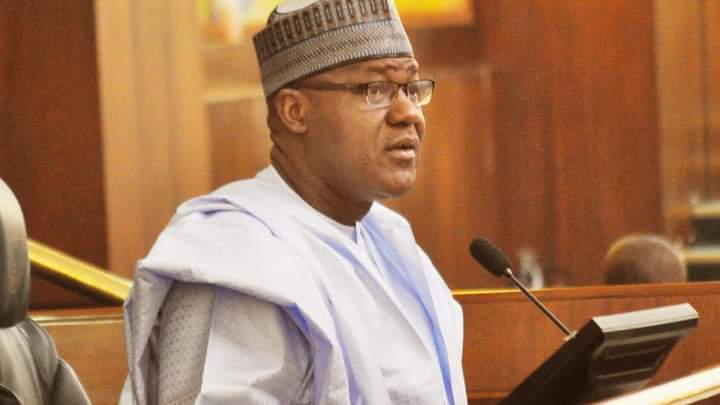Lagos, Nigeria – At the 12th edition of The Platform Nigeria, former Speaker of the House of Representatives, Yakubu Dogara, delivered a compelling speech emphasizing that poverty poses a more significant threat to democracy than weak institutions. The event, held at the Marriott Hotel in Ikeja, Lagos, was organized by Covenant Nation and focused on the theme “Democracy and the Free Market Economy.”
In his opening remarks, Dogara expressed gratitude to the event organizers and lauded their choice of theme, highlighting its relevance on a day commemorating Nigeria’s return to democracy after years of military rule. He underscored the failure of over two decades of uninterrupted democracy to ensure economic and social rights for Nigerians, noting the lack of security, quality infrastructure, employment, and basic necessities.
Dogara delved into the definition and evolution of democracy, referencing historical milestones such as the Magna Carta and notable definitions by Abraham Lincoln and Winston Churchill. He described Nigeria’s system as a constitutional democracy and stressed the importance of democratic principles in ensuring social justice.
Free Market Economy and its Challenges
The former speaker also elucidated the concept of a free market economy, contrasting it with command economies and emphasizing the utopian nature of a purely free market. He referenced the Heritage Foundation’s 2022 Index of Economic Freedom, noting that no country operates a purely free market economy, with Singapore ranked as the freest economy, while Nigeria’s economy struggles with significant challenges.
Poverty and Democracy
Dogara stressed that the promise of democracy—life, liberty, and the pursuit of happiness—remains unfulfilled for many Nigerians. He cited the 2022 Multidimensional Poverty Index survey, which revealed that 63% of Nigerians (133 million people) are multidimensionally poor, indicating that democracy is not working for the majority.
“Poverty deprives citizens of their political voice and prevents them from holding their governments accountable,” Dogara said, adding that this erodes public trust in democratic institutions. He urged the government to set clear targets and monitor progress in addressing poverty, drawing parallels to successful poverty alleviation efforts in China and India.
Addressing Foreign Exchange Crisis
Addressing Nigeria’s foreign exchange (forex) crisis, Dogara criticized the current policy and called for a transformation from a consuming economy to a producing one. He proposed several solutions, including demanding that all Nigerian exports be paid for in Naira, encouraging loans from Nigerians with large foreign currency holdings, improving inward remittances from the diaspora, and using intelligence to unlock USD stashed in private vaults.
Economic Reforms and MSMEs
Dogara advocated for the formalization of the informal sector to broaden the tax net and stimulate economic growth. He proposed the creation of a robust ecosystem of Micro, Small, and Medium Enterprises (MSMEs) across strategic economic zones in Nigeria. He outlined a vision for each region to focus on its strengths, such as agriculture in the North, industrial activities in the South East, petrochemicals in the South-South, and heavy industries and technology in the South-West.
Educational and Infrastructural Development
Dogara emphasized the importance of STEM education and called for substantial improvements in infrastructure, including roads, railways, inland waterways, and power supply. He proposed the establishment of technology and innovation hubs, government grants for promising inventions, and an annual Invention & Innovation Award to inspire creativity and entrepreneurship.
In closing, Dogara urged Nigerians to work constructively within the democratic framework, emphasizing the responsibility of freedom and the need to support policies that foster economic growth and reduce poverty. He called for collective efforts to rebuild the economy and stressed the importance of recognizing the government’s limitations.
“Scientists built the Titanic while amateurs built the ark, but the Titanic couldn’t survive a collision with an iceberg while the ark defied the global floods,” Dogara concluded, urging Nigerians to embrace possible solutions over the status quo.
Dogara’s address at The Platform Nigeria underscored the critical link between economic well-being and democratic stability, urging concerted efforts to address poverty and build a resilient, inclusive economy.
